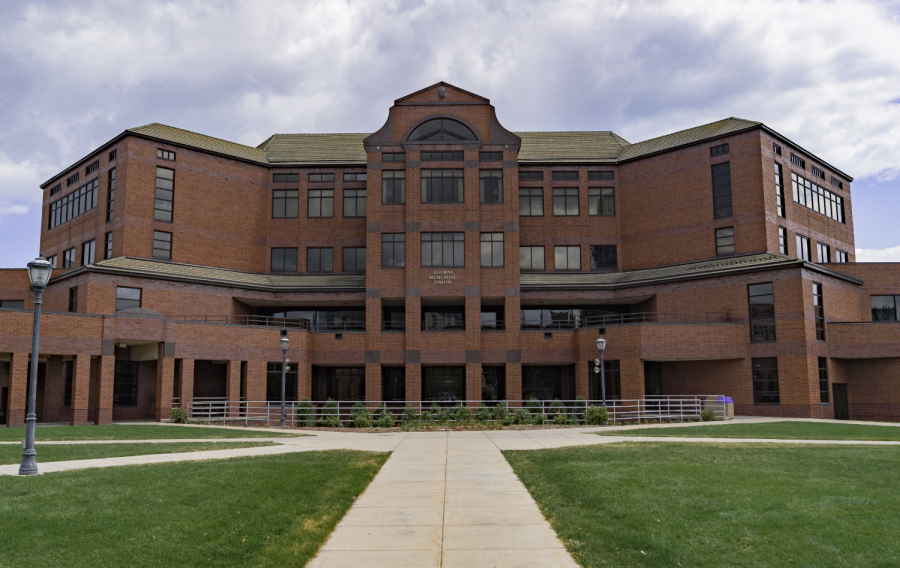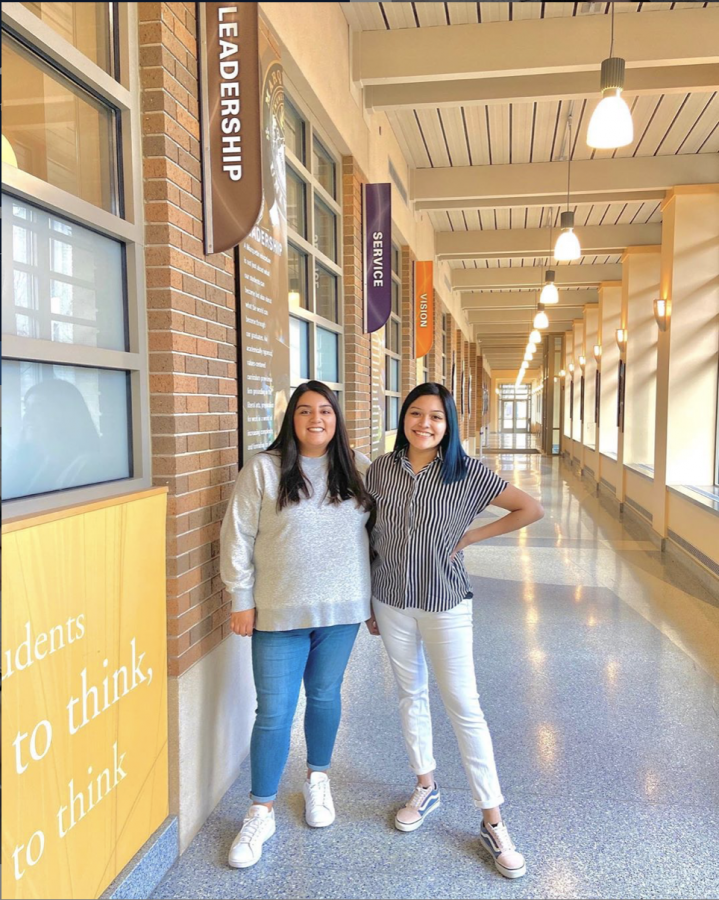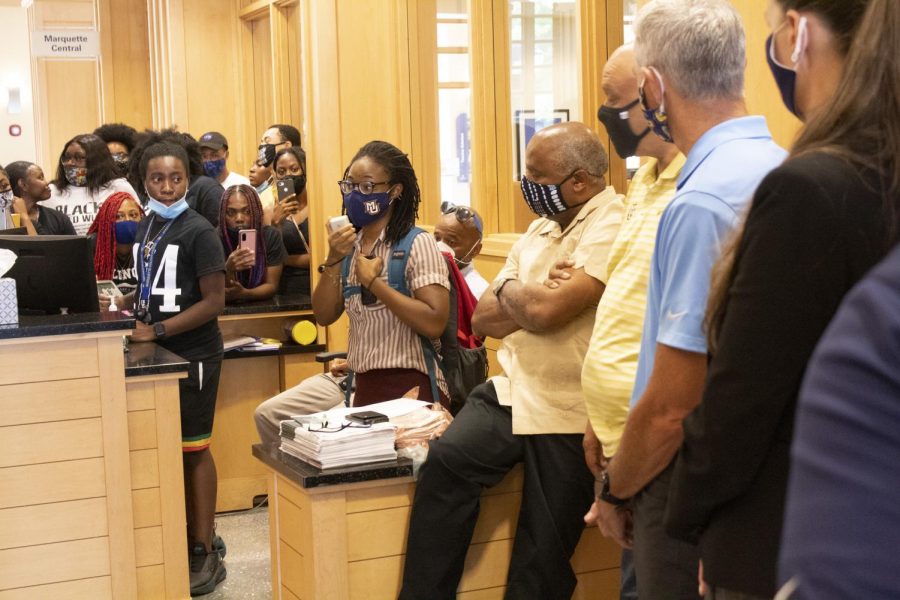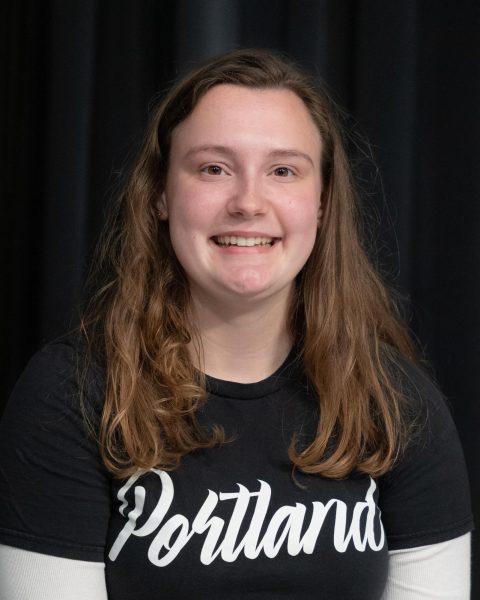Marquette University Student Government held a virtual Racial Justice and Equality Initiative town hall on Feb.20. The town hall was a conversation between students, faculty and MUSG representatives on how to make Marquette a better place for students of color. This comes just days after a Marquette University lacrosse player was kicked off the team for the use of racial slurs. Approximately 40 Marquette community members took part in the event.
“We’re hosting this to figure out ways to support students of color and to find ways to bring justice for all students,” Bridgeman Flowers , chair of the Racial Justice and Social Equity Committee for MUSG, said while introducing the event
MUSG representatives asked for students in attendance to describe how MUSG can better support them. One of the primary topics of conversation was the process of receiving funding from MUSG to fund different events for student organizations.
“The process to get money is way too long and way too complex. We never get any money for our events. We, as the Black Student organizations on campus, have repeatedly and commonly have to go into our own pockets to fund events,” Emmanuel Johnson, a junior in the College of Education and treasurer for the African Students Association, said.
In the past, funding for student organizations has been in bulk, meaning most organizations would have to apply months ahead of time without having a good idea of how much funding they would need. In some cases organizations would have to apply for funding As a result of COVID-19, MUSG has temporarily moved to spot funding. That means that student organizations can apply for funding on a rolling basis as they plan their events.
MUSG president, and senior in the College of Nursing, Evelia Guerrero said the shift to spot funding may become permanent.
“We’re shifting to be only spot funding, so you can apply when you need it. We’re working on legislation that will have to be approved by the Senate. S.O.F (student organization funding) is nearing a shift,” Guerrero said.
The conversation then shifted to prompted questions, by MUSG leaders. Students in attendance expressed their frustrations with the lack of change toward a more inclusive campus culture.
“It feels like we take four steps forward, then four steps back. I feel like we’re at the same place we were when I was a freshman,” Breanna Flowers, a senior in the College of Arts & Sciences and president of the Black Student Council, said.
Michelle Batad, a junior in the College of Education, said it feels like higher administration is not transparent with students.
“The only time they care about students of color is when they want to put our picture on the university website. It feels like we’re just floating bodies on this campus,” Batad said.
Students and MUSG representatives talked about their frustrations at the lack of education about issues that affect the city of Milwaukee within Marquette’s core curriculum.
“Marquette has a duty to teach students about inner-city issues and to care about city issues. There’s a huge sense of apathy in Marquette students,” Abby Gray, Abbottsford Hall residential senator, said.
John Su, vice provost of academic affairs, was in attendance at the town hall. He outlined four ways in which Marquette is planning to make changes.
“We’ve been working with the Committee on Teaching to explore what will be inclusive pedagogy training. It’s taking longer than we hoped, as we have to adjust to different academic disciplines, but we hope to have it in place by fall,” Su said.
The work with the Committee on Teaching looks to evaluate Marquette’s current teaching practices and make any revisions to ensure an inclusive educational experience for everyone.
The next two ways involved changes to Marquette’s curriculum. Su said the changes to the ENGL 1001 class, which is now a required class as part of MCC, helped to engage students in discussion about racial issues. He also stated that service learning participants, both faculty and staff, are now engaging in training to help with intercultural competency.
The last way was bringing attention to the student success initiative that was announced in President Michael Lovell’s Presidential address a few weeks ago. Which will help students graduate through a “network of care” that starts before students even arrive on campus.
Following the town hall MUSG posted a list of “takeaways” on their instagram page that included how they planned to address the issues brought up in the town hall. In addition a recording of the town hall is available through MUSG’s website
This story was written by Megan Woolard. She can be reached at megan.woolard@marquette.edu.







